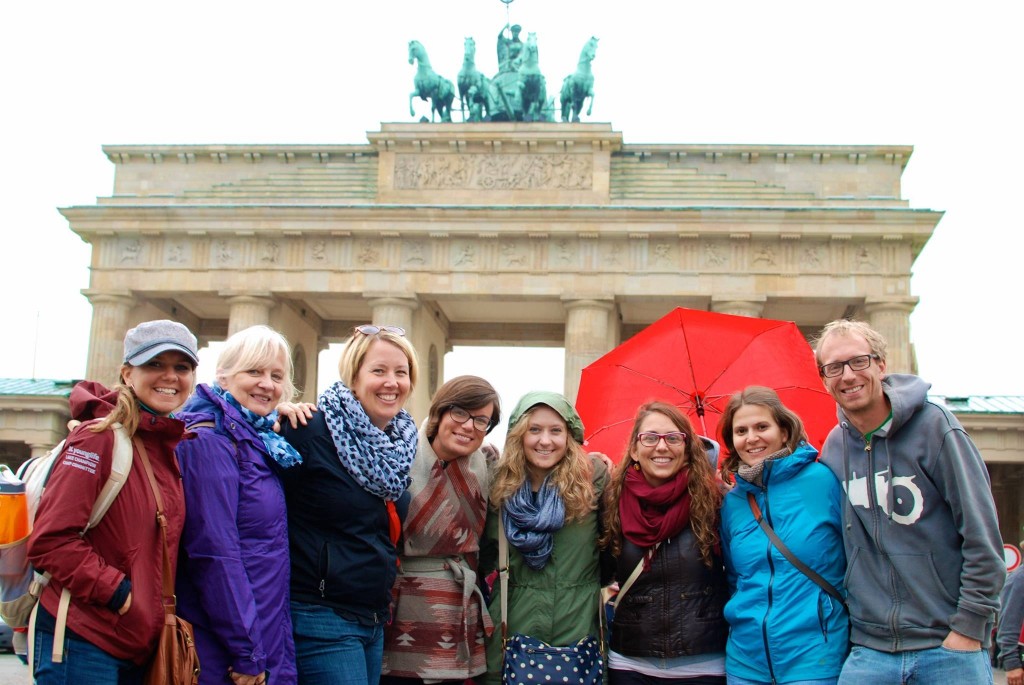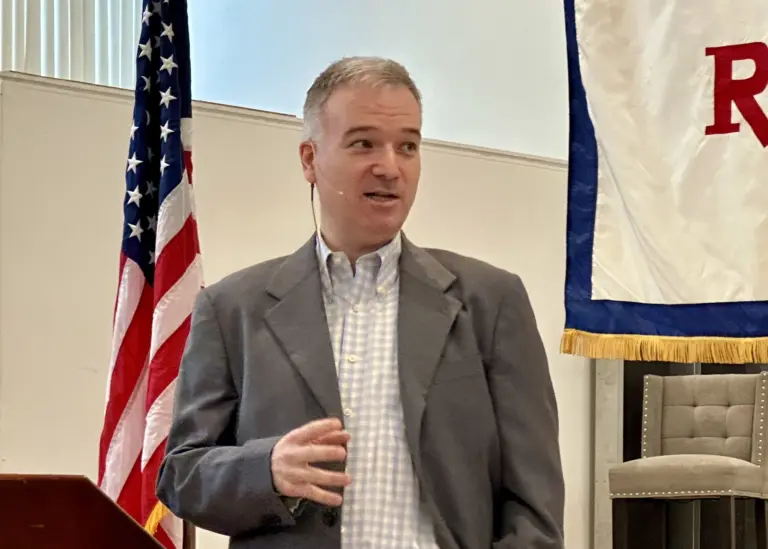Most of the children lack a home, school, and friends; many now lack families.
Giving them a new foundation to build on is a daunting task, but for Young Life and Diana Sanderson, it’s a goal that involves reaching out and crossing boundaries of culture and faith.
Sanderson, 33, has been connected with Young Life, a program designed to meet kids on their “turf” and give teenagers a platform to discuss issues of faith, for the majority of her life.
Sanderson became a volunteer leader at Young Life in early 2005 in Greenwich and transitioned to Young Life International in 2011.
Her journey started at the age of 15, when she suffered the loss of her mother to cancer and first attended a Young Life camp.
“I grew up moving around,” Sanderson said. “I was a varsity athlete at a very young age, but I didn’t really fit in with the varsity athletes or people my own age. We weren’t around any family, so I didn’t have a big huge familial network to depend on. I was always bouncing back and forth between friend groups, and I never felt like I belonged. I felt like I was falling through the cracks.”
As a sophomore, Sanderson began to seek guidance from mentors and older peers already involved in Young Life.
After spending time at a Young Life camp in Virginia, Sanderson got more and more involved. That led her to Greenwich’s Young Life chapter and eventually around the world to help kids and teenagers who need a sense of direction, as she once did.
“I became a volunteer leader in Young Life and decided to go full-time on their staff in Greenwich after college,” Sanderson said. “I’ve been working with students at Greenwich Country Day School and the Christ Church of Greenwich community. Across the board, I’ve had opportunities to be in contact with nearly every kid in Greenwich.”
Sanderson now serves primarily as a camp leader in Europe, providing weeklong and weekend camps for kids in need. Of her seven years’ involvement in Young Life, four have been spent overseas in the European division; she lives both in Belgium and in Greenwich.
“We’re Christian-based, but not necessarily associated or affiliated with a church,” she said. “Although we have support from the churches, we’re able to give kids a platform to make decisions about faith and big life decisions alongside other caring adults.”
Earlier this fall, she attended Young Life’s Mid-Europe conference in Prague. A gathering of staff from Germany, Poland, Switzerland, the Czech Republic, Bulgaria, Macedonia, Croatia and Austria came together to talk about mentorship, with keynote speakers from the United States and Germany.
In Munich, where many of the Middle Eastern refugees arrive, churches and non-profits are creating networks and plans, from hosting refugee families in homes for three to six months, to setting up teen centers, to making dinners to deliver to those arriving in Germany after arduous weeks of travel.
Refugees from Middle Eastern countries often come with Islamic roots firmly in tact, but that doesn’t stop Young Life from setting out to accomplish its goal of providing guidance to kids in need. Among Europeans, both refugees and non-refugees, Young Life often provides the first in-depth conversation about faith.
“In Europe, there is such a small foundation of faith,” Sanderson said. “Some countries have 70 to 80 percent of their population with no religion. Kids don’t have a lot of foundation to even start exploring faith. That’s where Young Life comes in. Our European division uses the same principles of the U.S., where you don’t have to believe to belong. We’re friends, leaders and mentors to kids.”
Sanderson continued, “We work in 99 countries around the world, and some of those are predominantly Muslim countries. Countries will often have other primary religions, but Young Life is still there mentoring and working with kids.”
Sanderson says the Syrian refugee crisis is beginning to shape classic teen culture as refugees in Europe struggle to fit in.
“In Europe, we work with specific populations of kids,” Sanderson said. “In Germany, with the Syrian refugee crisis, you have a ton of kids that are deprived of their home. You have all these Syrian kids who are uprooted from their lives and aren’t in schools. Kids are pushing boundaries, and they’re being more connected to peers than their families.”
Young Life distinguishes itself from other camps and programs by going where the kids already are, rather than having the kids have to sign up or act on their own initiative to get involved. By starting IMPACT Clubs, a school-board approved program organized by Young Life, in local schools in Romania, Poland, Czech Republic, Germany and Switzerland, the clubs will allow kids to serve locally and in countries affected by the refugee crisis.
“The main core of our mission is that we go to where kids are,” Sanderson said. “Kids don’t come to us. We’re not a church that says, ‘Kids, come to our youth group!’ So what we’re really going to talk about is, how do we show up in their lives as adults, mentors and leaders.”
Young Life has 23 properties around the United States, but none in Europe, which means the groups have to get creative when setting up camp sites for kids.
“We take a normal, everyday hotel or boarding school and we turn it into camp. We’re taking kids away from the chaos of their elements, the intensity of their lives, and we’re providing a week of adventure, and time to be with their leader. It’s an experience that produces a platform for kids to discuss faith, life, homework, parents, and more in a healthy way.”
In Poland and the Czech Republic, there are a great many Ukrainian refugees escaping war and harsh conditions. Sanderson says they assimilate easier than Middle Eastern refugees because of their European background—but they are still refugees.
Meanwhile, Young Life staff in Bulgaria, Macedonia and Croatia is reporting that the hardships the refugees are facing now are more or less the same as those they have faced since the war-torn 1990’s. A lack of food, warm clothing, and housing has hit the region hard, but even the poorest families reach out to refugees and offer temporary housing as a stop on their journey to Germany.
Whatever the country, Young Life reaches out to kids and teenagers to provide a sense of being included. Customized plans are developed for each country that hosts Young Life camps, but a common theme across cultures and borders, Sanderson says, is teenagers’ urge to belong to something—yet also to be independent and to push the limits on what they know.
“I think the core of a lot of teenagers is belonging,” Sanderson said. “No matter their culture, it’s belonging, acceptance, and pushing the limits. They want to test their limits on themselves to see what they can do, and we’ve seen this across the board. There’s something in the development of teenagers that they want to do that. No matter what culture you’re from, community and belonging are core parts of life. We give teenagers an option for something positive and good.”






